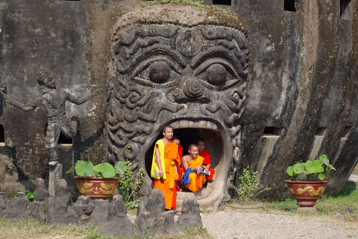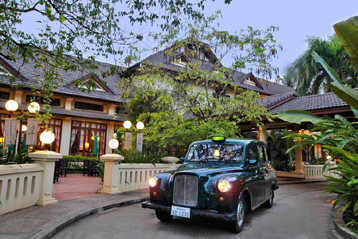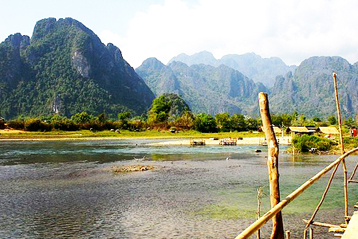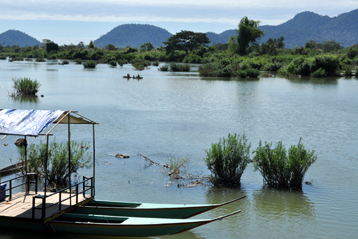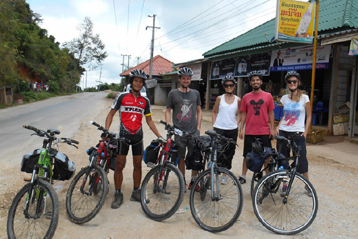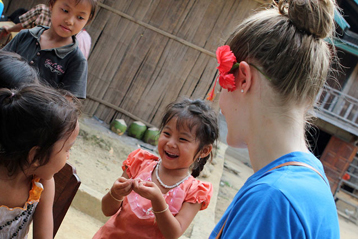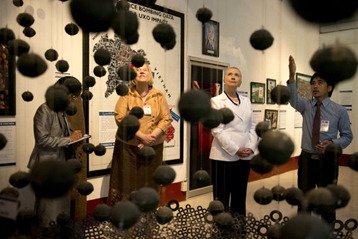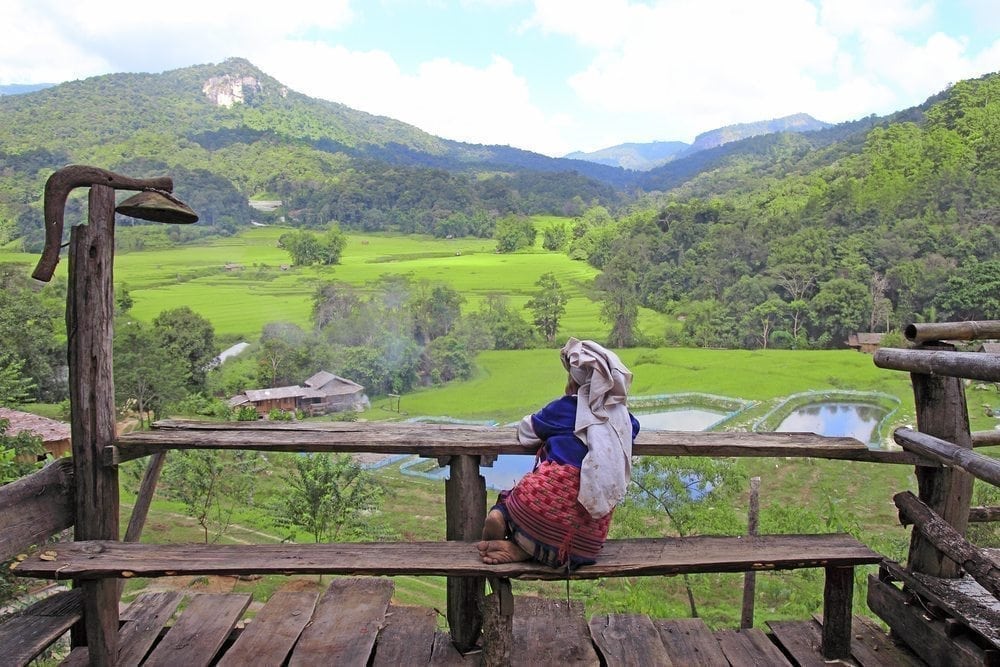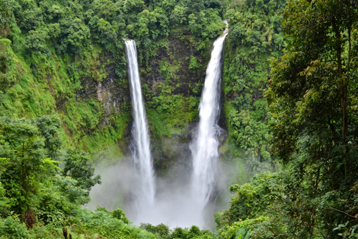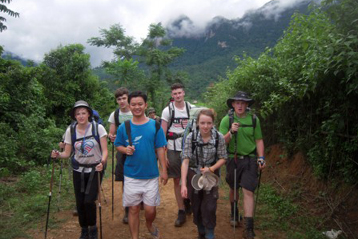Life in Laos
Villages are small, dusty/muddy depending on the season, and full of kids. You’ll be billeted with a family, usually with a maximum of two travelers per family. Toilets will be the squat variety, with scoop flush, in a dark hut at the corner of the block. You’ll bathe before dinner, either in a nearby stream or river, or by using a scoop to pour water over yourself from a well, 44-gallon drum or concrete reservoir in your family’s yard. Bathing is usually a public event, hence the sarong. Don’t expect a mirror.
Food will be simple fare, usually two dishes and sticky rice. In our experience it’s almost always been delicious, but prepare yourself for a sticky rice extravaganza during a five-day circuit through homestay. In southern Laos we ate sticky rice 14 meals out of 15. Even If the food doesn’t appeal, you should eat something or your host will lose face. Dinner is usually served on mats on the floor, so prepare to sit lotus-style or with legs tucked under. Don’t sit on cushions as that’s bad form, and always take off your shoes before entering the house.
Sleeping will probably be under a mosquito net on a mattress on the floor, and might change to ‘waking’ once the cocks start crowing outside your window.
It might not be luxurious but home stay Is very much the ‘real Laos’ and is a thoroughly worthwhile and enjoyable experience. Just remember that for most villagers, dealing with falang tourists is pretty new and they are sensitive to your reactions. Their enthusiasm will remain as long as their guests engage with them and accept them, and their lifestyle, without undue criticism. To get the most out of it take a phrasebook and photos of your family, and don’t forget a torch, flip- flops, a sarong and toilet paper.
More guide...
Responsible Travel
Being a responsible eco tour operator is at the heart of what ACTIVETRAVEL ASIA is all about. From the start, we have been committed to offering low-impact tours that benefit traveler and host alike. We work with local communities, businesses and individuals to develop sustainable tourism opportunities that help local economies while minimizing negative environmental and cultural impacts.
Asia Travel News


